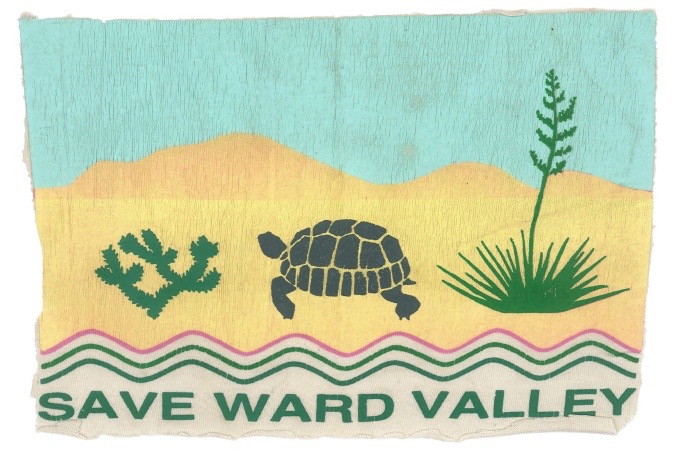Environmental Justice Archiving for the Ward Valley Campaign and Beyond

The contributions of people of color to US environmentalism, and especially those of Native Americans, remain under-acknowledged in the narrative history of the US environmental Movement. The late 1980s to early 2000s campaign to stop construction of a nuclear waste landfill in the Mojave Desert’s Ward Valley is one such contribution. Five tribes along the Arizona/California border (Fort Mojave, Chemehuevi, Quechan, Cocopah, and the Colorado River Indian Tribes known as CRIT) partnered with a diverse array of environmentalists to oppose the landfill. They revived tribal traditions, built support from national celebrities, and hosted visits from survivors of nuclear disasters at Three Mile Island, Hiroshima and Chernobyl.
Every February since their victory in 1998, campaign participants have gathered at the site of the proposed landfill to commemorate the victory and practice cultural rites. In this way, the story of the Ward Valley struggle has been kept alive through oral tradition within the circle of former-participants and their friends and family.
The goal of this project is to expand the digital archive of the Ward Valley campaign, and to convene national and regional stakeholders to discuss the creation of a national network of environmental justice archives, with ASU serving as a central node.
Tracy Perkins | Assistant Professor, School of Social Transformation
Alexander Soto | Assistant Librarian (FSC), Labriola Center, ASU Library, for their project

